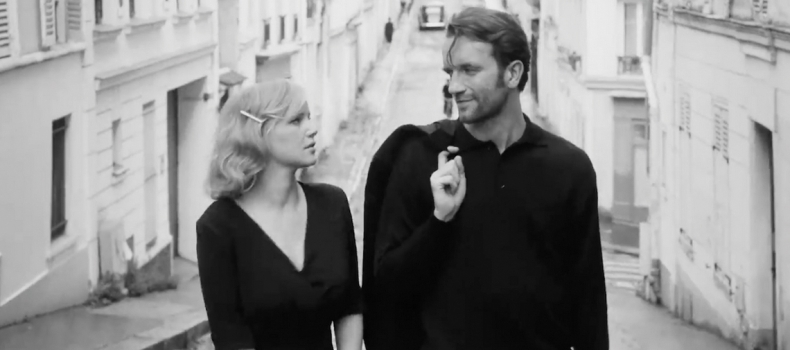Film Review: Cold War (2018) Dir. Pawel Pawlikowski
Consumed by desire: Joanna Kulig and Tomasz Kot play lovers whose paths cross and diverge
There is as much heat as cold in this gorgeous-looking passionate love story, served up with music and dance in 1950’s post-war Europe. The bleakness of Poland in the winter of 1949 where a small crew of musicologists is scouting rural villages to record examples of authentic folk tunes sung by untrained voices and accompanied by strange, sometimes hand-made instruments, is rendered in stark black and white images by the brilliant cinematographer Lucasz Zal, who also shot Pawlikowski’s last award-winning film, Ida. Their mission, which is encouraged (possibly mandated) by the state, is to revive the culture of the peasants as part of a larger program to boost national cultural pride by elevating indigenous talent and share it with the larger world. As they gather material they are also assembling potential local talent to perform in the company which will be formed.
When Wiktor (Tomasz Kot), a pianist, who will direct the company, begins auditions in an abandoned mansion where the company will live and rehearse, his eye is caught by a sultry, insouciant young blond singer named Zula (Joanna Kulig). Among the relatively fresh-faced group she stands out as being possessed of some more worldly experience. Wiktor’s intuition is soon proven correct as he discovers she is on probation for killing her father, who “mistook her for her mother”. Wiktor is intrigued rather than deterred and it is not long before they are involved in a red hot affair. It is not without it’s prickliness as they are both difficult, strong-willed individuals. Also, under the communist regime, matters of privacy are best kept closely guarded so as not to open oneself up to blackmail or treachery. Paranoia is rampant.
As the company, Mazurek, is formed and begins to perform to great acclaim and travel all around Poland, Zula is one of the main attractions. When the communists begin to see an opportunity to use the company as a vehicle for some propagandizingn they commission songs which involve political issues, praise of Stalin and the regime. Wiktor, who really loves jazz is becoming restless with the constraints of the work he is producing and decides to take the first opportunity to defect when the company begins to travel outside of Poland. Zula agrees to meet him and go with him to Paris. But, she has a change of heart and does not show up, leaving him to go by himself.
This will be the first of many heart-wrenching separations for Wicktor, who has had to renounce his Polish citizenship. The rapturous reunions and agonizing leave-takings which continue for the next 15 years are evidence of the intensity of their attraction to each other, but which cannot seem to survive either togetherness or estrangement. They meet in Paris, Yugoslavia, and Berlin, often at great peril. These are not fun times to be living in eastern Europe. In the times between we catch snippets of details of the lives of Wiktor and Zula with other lovers but a lot is left out and seems to be of little importance to the story.
The director has dedicated the film to his parents, whose names are the same as the film’s characters. They, apparently married and divorced each other twice. I don’t know if the film’s final solution for their star-crossed relationship is based on his own parents. They appear to have given up fighting against being together in a dramatic yet somehow satisfying endgame. The intensity between these two hugely appealing actors is palpable carried by a wonderful soundtrack of jazz, classical, and popular music, and taking place in many evocative cities and locations. Its a lot of story in a relatively pared down film which nonetheless feels fully realized.
You can watch a trailer for the film here.








